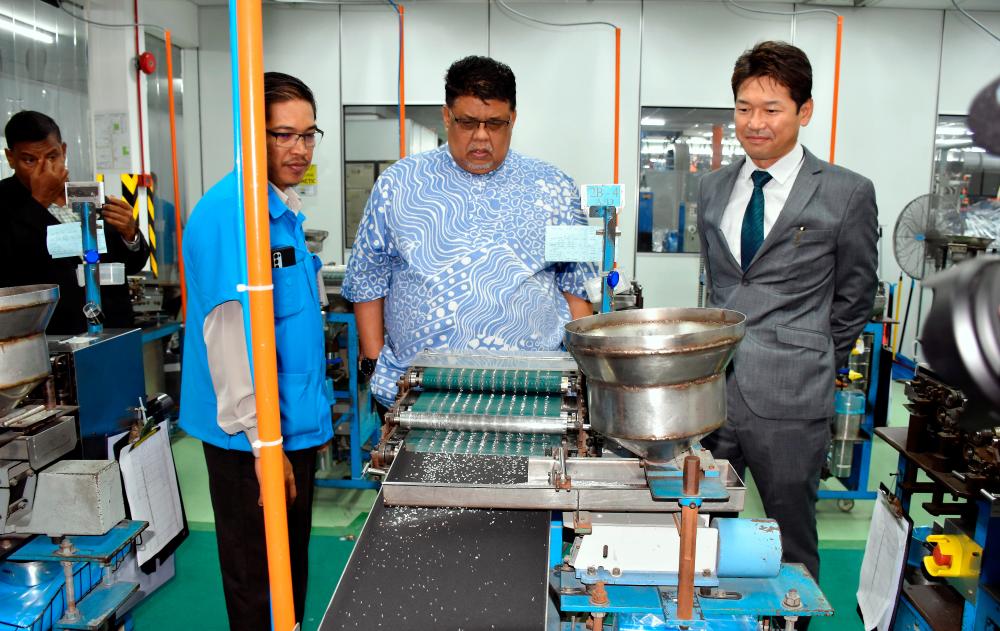MALACCA: Japan-based microchip component maker Koa Denko (Malaysia) Sdn Bhd will raise its capital investment to RM750 million within five years starting next year to include the construction of a new factory in Ayer Keroh.
Senior state executive councillor for investment, industry and entrepreneur development Datuk Seri Ab Rauf Yusoh said the rise in capital expenditure translates to a total investment of about RM1 billion from the company since it started operations in Malacca about 50 years.
He was speaking to the media after a memorandum of understanding (MoU) signing ceremony between Koa Denko (Malaysia) Sdn Bhd and PDG Asset Sdn Bhd involving the rental of the new Ayer Keroh Industrial Zone workers’ dormitory.
He said 20% of Koa Denko Malaysia’s global microchip output helped support the development of new technology which were exported to the United States, Hong Kong, China, Germany, Singapore and Vietnam among other countries.
“Demand and supply for this industry is so good that it has decided to expand operations by building a new factory and workers’ dormitory in Ayer Keroh.
“We expect the production value of this factory, currently RM180 million a year, to increase to RM1 billion in the next five years after the new factory is completed,“ he said.
Ab Rauf said the new factory is also expected to generate about 2,000 job opportunities, particularly among the Malacca community. So far, its Batu Berendam factory has 823 workers including 565 locals.
He said local companies also have the opportunity to become vendors supplying equipment or machinery to the factories.
“I was informed that Koa Denko Malaysia is expected to establish a logistics centre in the state as a distribution hub for microchips produced by this factory, especially for use in electric vehicles,” he said.
In another development, he said Malacca aims to attract investments, particularly from foreign investors, in the automotive, glass and data centre sectors amounting to RM6 billion next year.
“We are optimistic about achieving our investment target of RM6 billion next year since we have almost reached our RM5 billion target this year.
“The foreign investors expected to confirm their investments are from Taiwan, Germany and South Korea,“ he said. - Bernama









